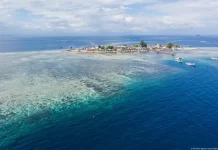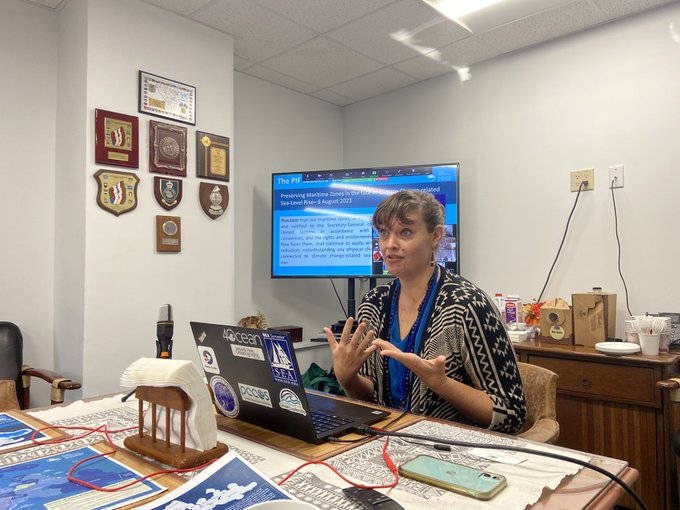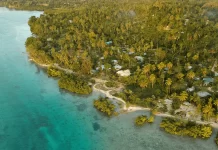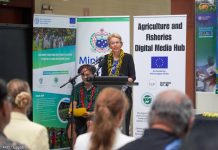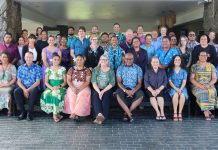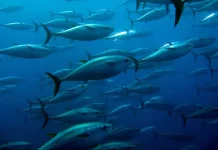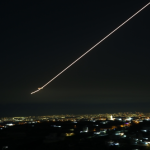Opinion by Douglas J McCauley
The ocean is often seen as the last wild frontier: a vast and empty blue wilderness where waves, whales and albatrosses rule. This is no longer true. Unnoticed by many, a new industrial revolution is unfolding in our seas.
The last several decades have seen exponential growth in new marine industries. This includes expansion of offshore oil and gas, but also exponential growth of offshore renewables, such as wind and tidal energy.
Aquaculture, or farming underwater, is one of the world’s fastest growing food sectors. Fishing occurs across more than half of our ocean. More than 1m km of undersea data cables crisscross the high seas. And our ocean highways carry about 1,600% more cargo on ships than they did in the 1980s.
New industries are also lining up to join this booming ocean economy: companies are jockeying to start ocean mining in the Pacific; new experimental fisheries are targeting deep ocean life previously thought impossible to catch; and geoengineering ventures are looking to operate in the ocean.
The onset of this marine industrial revolution puts into context the urgency of a new UN treaty being finalised this week that will dictate the future of the single biggest piece of our ocean and our planet: the high seas.
Encompassing all waters 200 nautical miles beyond nations’ shorelines, the high seas cover two-thirds of the ocean. Uniquely, this vast expanse belongs to us all.
Unfortunately, sharing hasn’t worked out well. Fishery resources are monopolised by a few wealthy actors. Approximately 97% of the trackable industrial fishing on the high seas is controlled by wealthy nations, with 86% of this fishing attributable to just five countries. Some of our most lucrative and nutritionally important high seas fish populations are in decline.
Biodiversity on the high seas is ecologically important, diverse, unique – but also fragile and increasingly threatened by the explosion in marine industry. Many great whale species have been driven to the brink of extinction by lethal interactions with the fishing and shipping industries as well as the legacy of whaling. Even ocean snails have been declared endangered due to the risks posed by deep-sea mining.
One high seas region in the Pacific deserving of protection hosts an ancient undersea mountain chain whose peaks rise up from the deep where they are adorned with crowns of golden corals, some more than 4,000 years old, and flanked by schools of jewel-like endemic fish species found nowhere else on Earth. This same area is threatened by bottom trawling and ocean mining.
The UN treaty being negotiated in New York provides hope for creating new tools to more intelligently plan out this explosive growth in the “blue economy” and reverse at least some of these negative trends. One historic element of the treaty would be the opportunity to set up high seas marine protected areas.
Nations from around the world have already joined scientists to back a commitment to protect 30% of our ocean by 2030. Unfortunately, we are terribly behind. At best, 8% of the world’s oceans are protected. To get to 30%, and to make such a system ecologically representative, we will need to establish high seas protected areas.
The treaty is also an opportunity to promote climate resilience. Networks of high seas protected areas could serve as stepping stones for climate stressed species attempting to escape ocean warming.
Today, a mosaic of more than 20 organisations hold different slivers of responsibility for our increasingly busy high seas. A lot slips through the cracks. In our rapidly and haphazardly developing oceans, it is as if we created departments of sanitation, roadworks and water but never quite got around to electing a mayor to bring it all together.
As the marine industrial revolution advances and our ocean grow busier, solutions for high seas management slip further away. Inaction means industry will decide the fate of the high seas for the world, instead of the other way around.
The ocean provides about half of the world’s oxygen, nutrition for billions or people and trillions of dollars in jobs and revenue – it is our fate, as much as anything else, that is being decided by this treaty.
SOURCE: THE GUARDIAN/PACNEWS





